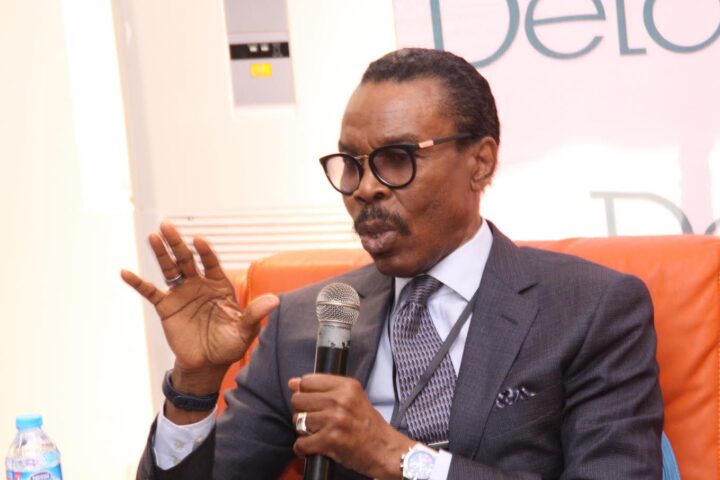Bismarck Rewane, chief executive officer (CEO), Financial Derivatives Company, says Nigeria will be vulnerable to external shocks in 2024, especially global oil prices and supply chain shocks.
Rewane made this known during an economic outlook session organised by the Lagos Chamber of Commerce and Industry (LCCI) on Tuesday in Lagos.
He predicted that Nigeria is primed for a 3.3 percent growth in 2024, forecasting a minimum wage increase from N30,000 to N50,000.
He said the naira is undervalued by 33.58 percent at the parallel market rate of N1,285 per dollar and 4.16 percent at the Nigerian Autonomous Foreign Exchange Market (NAFEM) rate of N890.54 percent.
Advertisement
Rewane said the main macroeconomic issues facing the nation include high rates of unemployment and poverty, growing income inequality, and less-than-ideal and non-inclusive growth.
Other factors, he said, include soaring inflation, growing fiscal imbalance and currency pressures.
He underlined four main indices that may be used to evaluate economic resilience, namely: social development, macroeconomic market efficiency, macroeconomic stability, and good governance.
Advertisement
Rewane said the inevitable policy changes for 2024 include external and internal factors such as debt rescheduling, increasing interest rates, more efficient money supply, and an efficient foreign exchange market.
Others, according to Rewane, include cost-reflective electricity tariffs, reduction of petrol subsidy, and wage review.
“Key fiscal policy objectives would be to stimulate growth output, boost employment level, ensure equitable distribution of income and wealth, boost in investment level and debt management,” he said.
“Major opportunities for policy changes include exchange rate sanitisation, which would lead to export smuggling to reduce, boost in global commodity supply, lower food prices.
Advertisement
“Opportunities for policy changes in increased tax rate and efficient tax collection would lead to boost in state government revenue, paid contractors and increased demand for cement and other commodities.
“In 2024, Nigeria will remain more integrated with the global and regional economy and will be vulnerable to exogenous shocks especially global oil prices and supply chain shocks.
“Nigeria will also need to come to terms with its domestic and external debt situation and is expected to begin talks with the IMF and reschedule its external debt.”
However, he said policy reforms without institutional modifications will exacerbate the situation.
Advertisement
Add a comment






